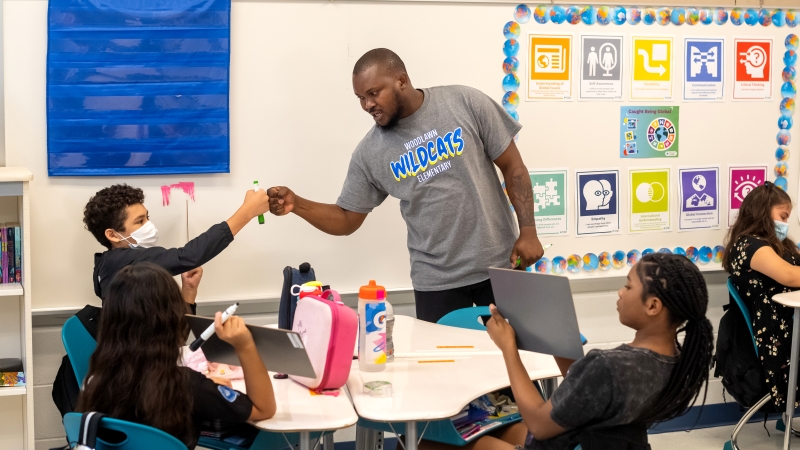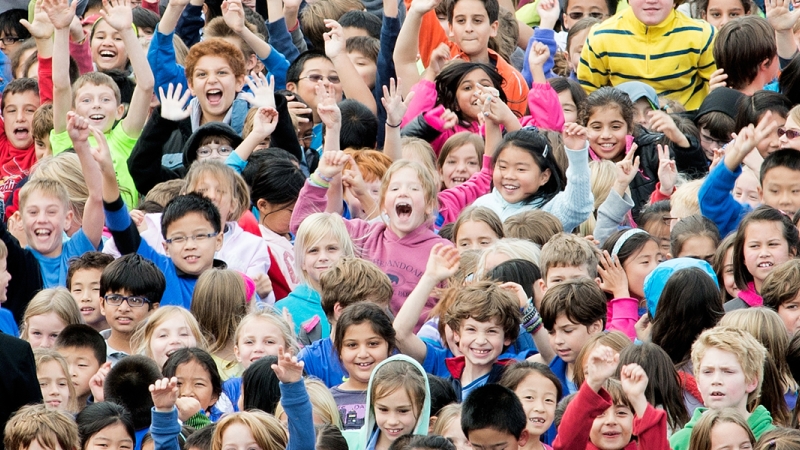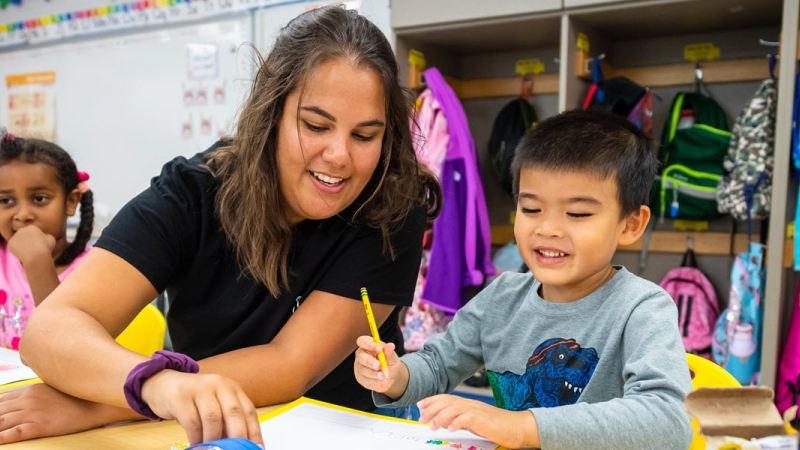
Multilingual Teacher Shares Her Passion for Learning
Indiana Obando (above) has, as she describes it, “an unwavering passion for learning.”
“I have always embraced challenges as opportunities for personal and professional growth,” she said. She loves diving into new topics and sharing what she learns with others. “What truly drives me is my commitment to creating an inclusive and equitable learning environment, a commitment I hold dear and am determined to uphold, as it is a crucial step towards a more just society,” she says.
In 1987, Indiana and her father migrated to Virginia from Nicaragua. “Upon arriving in the United States, I was amazed by the differences in the educational system compared to what I was used to in Nicaragua.” Indiana attended Mount Vernon High School.
“As a teenager, I was fascinated by the presence of lockers in the school, the plush carpeting in the classrooms, and the well-organized cafeteria with a diverse menu,” she said. “The accessibility of school buses was also impressive, ensuring every student could quickly get to and from school.”
Indiana met classmates from El Salvador, Ethiopia, Korea, Iran, Argentina, and Vietnam at school. “It was incredible to see how many languages some spoke and the different types of foods they ate,” she said. However, “It felt like we were all in this together, aiming to embrace American culture while holding on to our heritage.”
Being Recognized as ‘Hispanic’
“Coming from a country affected by war and economic blockades, I was astounded to find a supermarket offering various cereals neatly displayed in a single aisle,” Indiana said, reflecting on coming to the United States. “It was also interesting to be referred to as being of Hispanic origin, a term not commonly used in Nicaragua.”
Those with Hispanic heritage come from a diverse range of cultures, languages, races, and traditions. They are from Spain, Mexico, the Caribbean, and Central and South America.
Each group has its unique history and contributions. Indiana is proud to highlight that people of Hispanic heritage have made contributions in many fields, including art, science, and politics. “Celebrating figures like César Chávez, Frida Kahlo, Rubén Darío, and Ellen Ochoa highlight this impact,” she says.
In addition to celebrations, Indiana hopes that people take the time to also learn more about the struggles of Hispanic groups. “Understanding the historical context of colonization, migration, and the civil rights movements that have taken place within Hispanic communities can help provide a deeper appreciation for the struggles and achievements of these diverse groups.”
Establishing a Nurturing Environment for Others
Indiana was taught by “incredible ESOL educators, Mrs. Kennedy and Mrs. Pierce.” She still remembers Mrs. Kennedy teaching them the lyrics to the song “My Favorite Things.” In 1995, while still in college, she began working as a kindergarten instructional assistant. She became a teacher in 2000 and began her career in Arlington Public Schools. In 2005 she started teaching for Fairfax County. Now she also teaches multilingual learners at Bailey’s Elementary School.
“I have dedicated myself to the education of multilingual learners due to my own journey, cultural heritage, and a deep-seated desire to leave a meaningful impact on the lives of my students and their families,” she said. “Drawing from my personal experiences as a multilingual learner, I have developed a profound sense of empathy and understanding that equips me to support my students; irrespective of their backgrounds. As an educator, my primary goal is to establish a nurturing and secure environment where multilingual learners and their families not only feel understood but also empowered to flourish.”
Indiana said her background and heritage impact how she teaches in five main ways. She is more aware of nuances between cultures, traditions, and values, which helps her to recognize and validate her students’ diversity and create an inclusive environment in the classroom. Having experienced what it’s like to encounter language barriers, she can be more empathetic and create supportive and nurturing environments where students and families feel safe to express themselves.
She actively promotes diversity in her lessons, including culturally relevant materials, perspectives, and discussions for her students. Her background helps her connect personally with her students and their families through shared experiences to build trust and rapport.
“Having faced challenges related to my background has inspired me to foster a growth mindset in my students, helping them see obstacles as opportunities for learning and resilience,” she said.
These opportunities, she said, can lead to “transformative educational experiences” for her students.
Being Recognized for Her Own Growth Mindset
A growth mindset is something that she continues to demonstrate for her students. In 2007, Indiana was chosen to participate in the Japan Fulbright Memorial Fund (JFMF), during which she gained insight into Japanese culture and the educational system through a three-week trip with other educators.
Indiana was nominated as Outstanding Teacher of the Year at Bailey’s Elementary School for the 2019-20 school year. In 2014 she was named a Northern Virginia Hispanic Educator of the Year.
This year, she was selected for the Fulbright Teachers for Global Classrooms program. The Fulbright program is a yearlong professional learning program that includes a short-term exchange program to help teachers gain an international perspective.
After the program, Indiana hopes to be able to “educate my students and their families about important global issues, encouraging them to explore and propose potential solutions. My goal is to teach my students that our actions in our country can have far-reaching effects on other nations. As future leaders of the nation, it is my responsibility to cultivate a more global and empathetic mindset in them so they can effectively solve problems.”








